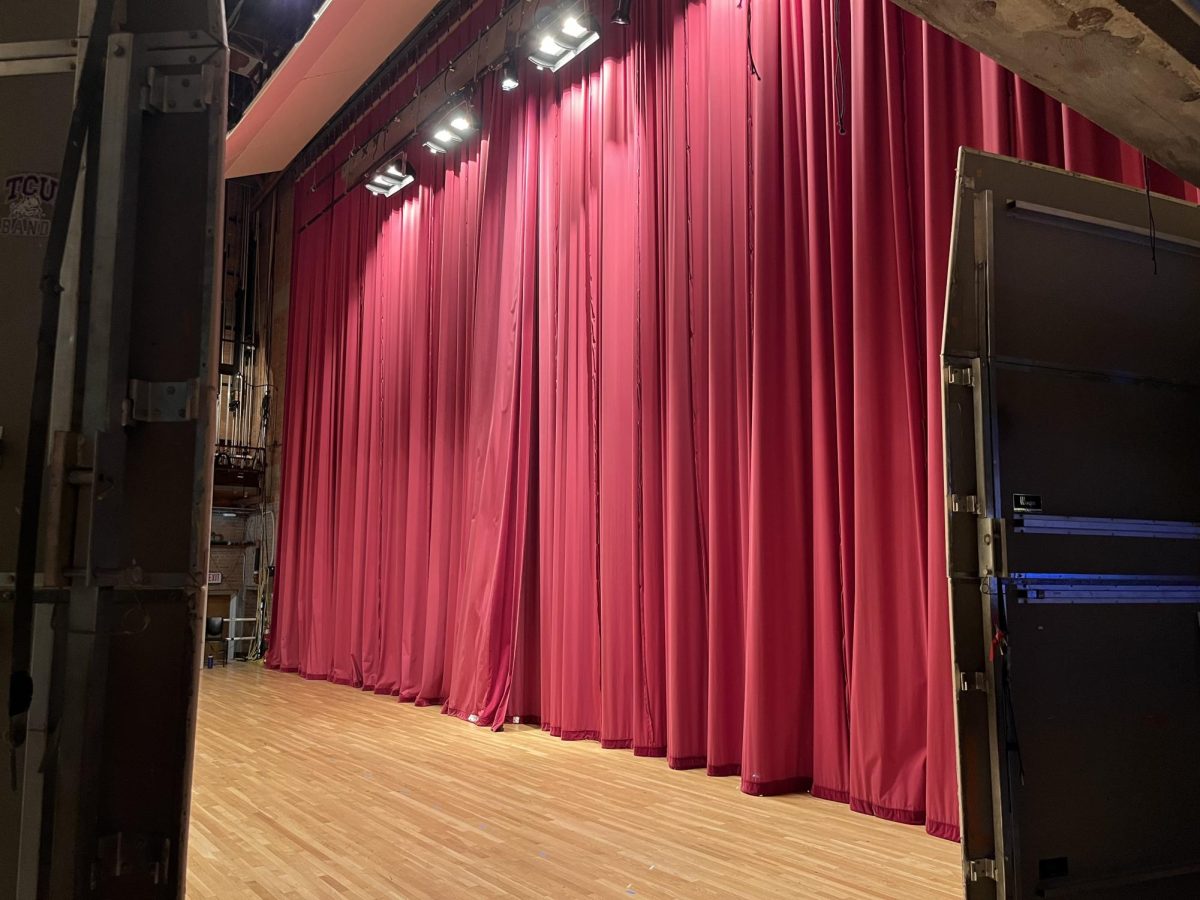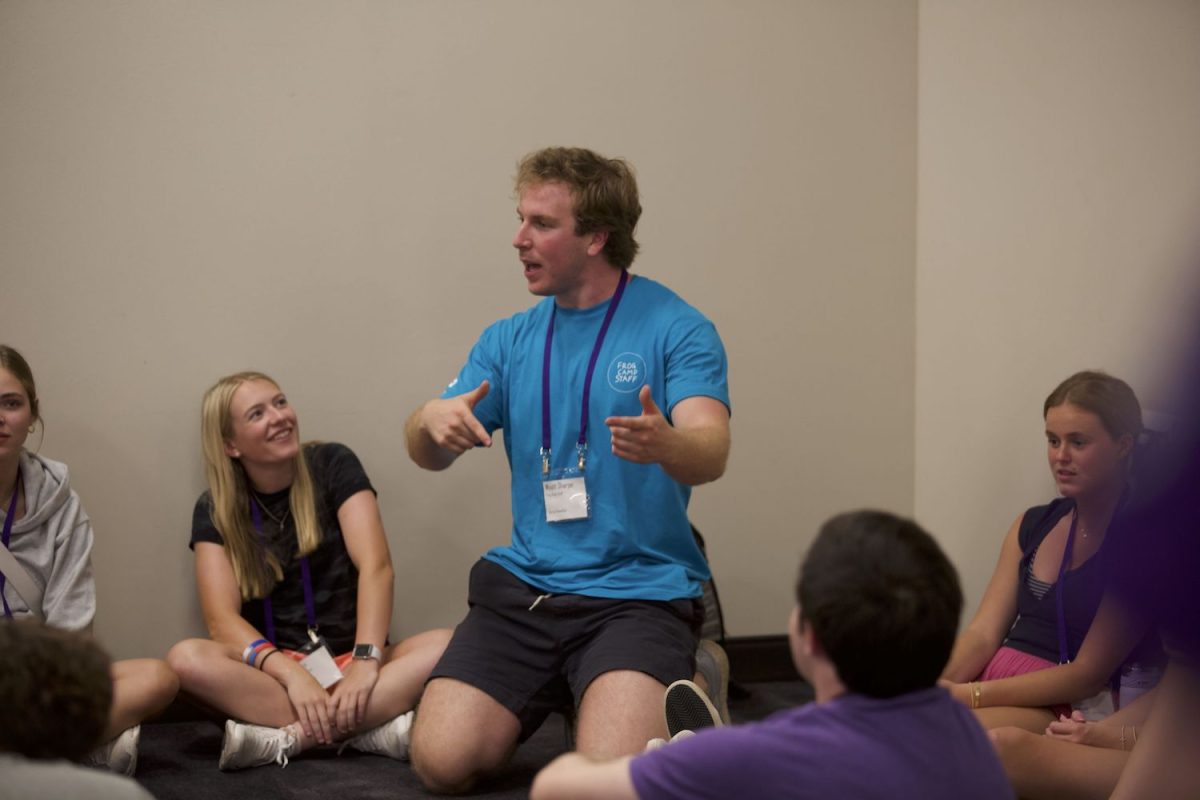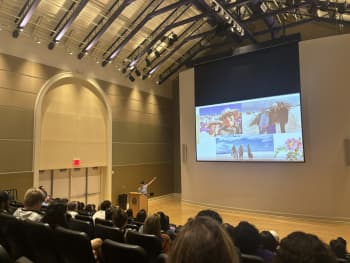A project emerging from the Harris College of Nursing & Health Sciences is working to help residents of Fort Worth spend more time outside in hopes of improving their physical and mental health.
Although the coronavirus has limited in-person meetings, Dr. Gina Alexander and Dr. Vicki Brooks are continuing to develop RxPLORE, which stands for “Prescribing Life Outdoors and Real Exploration.”
The project, headed by Alexander and Brooks, began last semester. It revolves around social prescriptions, a concept in which clinicians instruct patients to engage in more physical activity, eat more fruits and vegetables, or be in nature.
“The body can heal itself, and we can prevent a lot of illnesses if people practice basic health promotion and wellness on their own,” Alexander said. “One of those ways is by being outdoors, being in nature.”
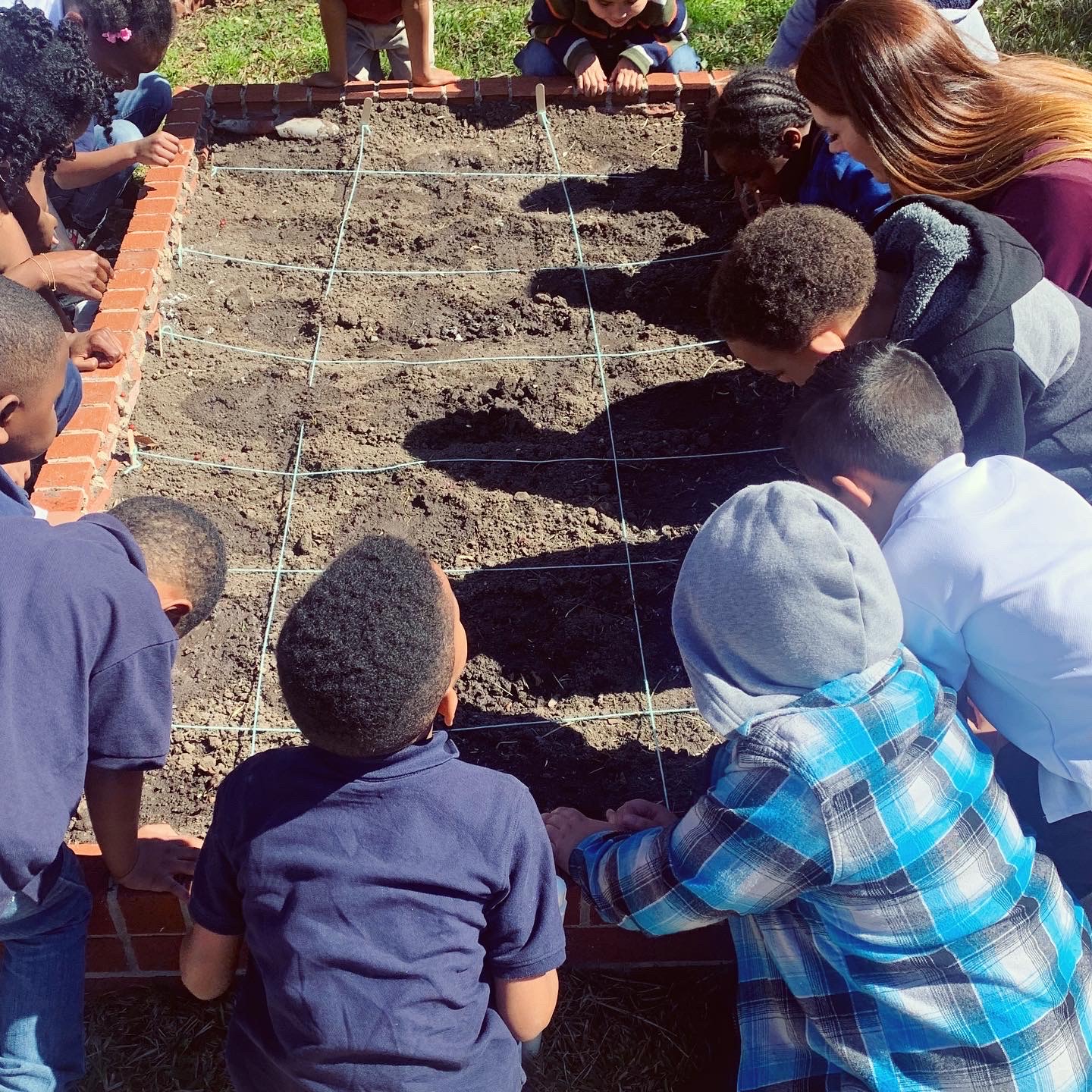
The purpose of RxPLORE is simple: help people spend more time outside. Or, as graduate DNP family nurse practitioner student Rachael Taber put it, “less screen time, more green time.”
Taber is part of the team working to implement RxPLORE at TCU. She and an undergraduate nursing student are planning and brainstorming ways to integrate this initiative on campus.
Alexander and Brooks said being in nature offers many health benefits, including reduced levels of anxiety of depression, lowered blood pressure, decreased needs for prescription medications, more physical activity, weight loss and an improved immune system.
“I think a lot of people have the sense that when they’re outdoors, their mood improves. There’s a lot of beauty around us, and I think people innately see that that’s very calming and a good thing to, sort of, unplug from our devices and be outdoors.”
Dr. Gina Alexander
The method
Before social distancing orders were put in place, RxPLORE members met with patients face-to-face where they would interview them to learn about their work schedules and interests. Then, they would input their zip codes into ParkRx to locate green spaces near where people live.
“It was really, really neat because a lot of the families had no idea there were so many parks so close to them, so many different green space options,” Taber said.
Brooks said the RxPLORE team added 283 parks in the Fort Worth area to the ParkRx database.
The RxPLORE team then prescribed the patients to be intentional about spending time outside several times each week.
“It’s things that they would already be doing, but maybe being a little more purposeful and mindful about connecting with nature while they’re doing those outdoor activities,” Alexander said.
The prescription was sent to the patients’ phones, and they were able to record their progress and “refill” their prescription, Taber said.
“They can kind of track and feel motivated, and they can see their progress, so it really empowers them, too,” she said.
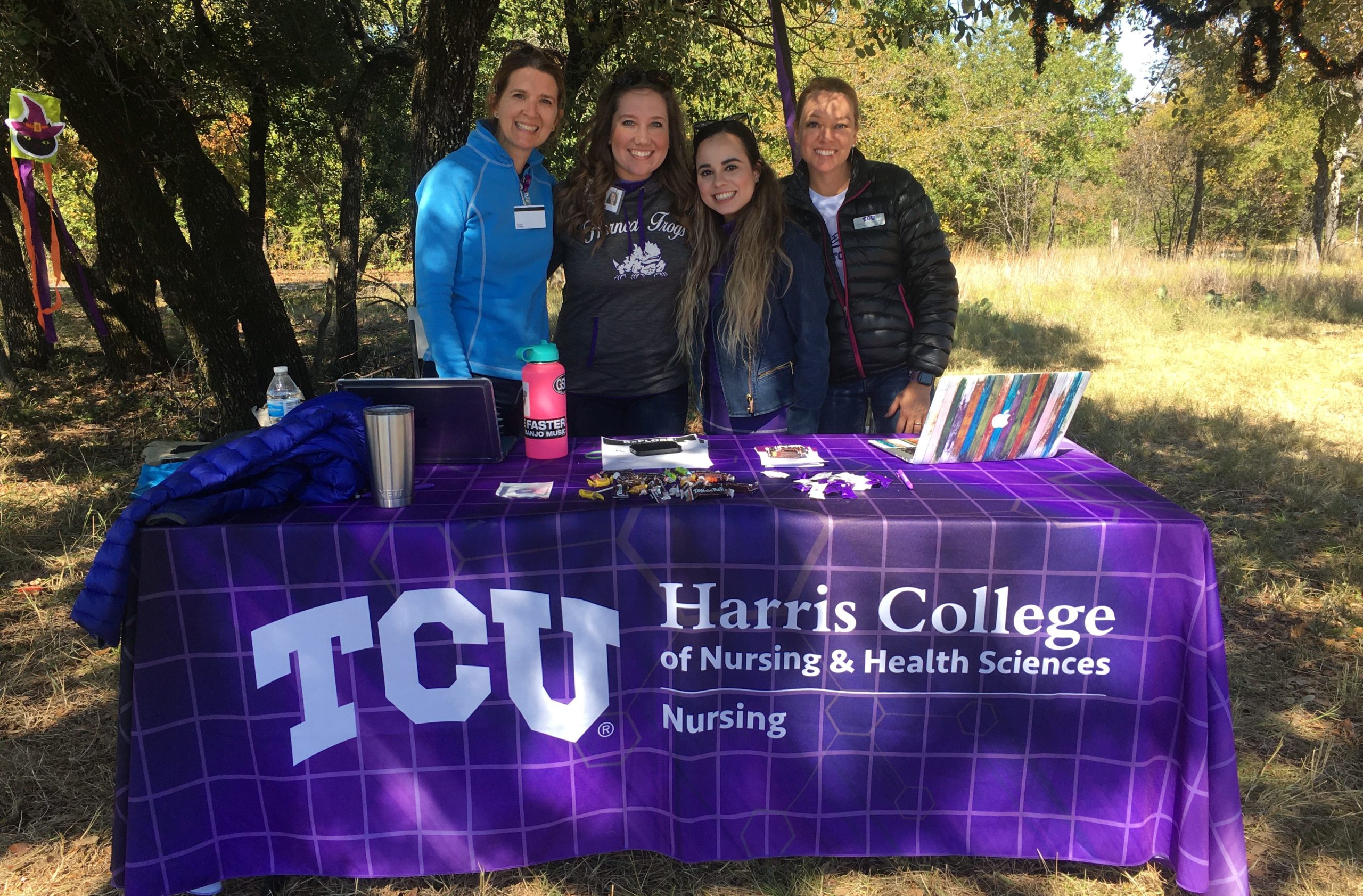
However, just because the patients have prescriptions, it does not mean they will follow them. Alexander said RxPLORE needs funding to determine the dose-response and outcomes of spending time outdoors.
“What we don’t know is if people are establishing a real pattern of being outdoors in nature, what those health benefits are and really what is the dose of nature that they need in order to get those health benefits,” Alexander said.
RxPLORE bases its prescriptions on cross-sectional evidence. The research Alexander and Brooks hope to do will investigate and expand on the already existing information.
RxPLORE’s solutions take into consideration social determinants of health, the idea that social and economic conditions affect an individual’s health. Since parks and other public outdoor areas are free to access, anyone can take advantage of the benefits that arise from being outside.
“It’s a prescription, again, that doesn’t cost anything, and it’s still promoting health.”
Dr. Vicki Brooks
This introduces another objective of RxPLORE: to assess the quality of the green spaces in the city. Alexander said they will ask members of the community about how public outdoor areas can be improved. To do this, RxPLORE has partnered with the Fort Worth Park & Recreation Department.
Robert Denkhaus, the nature center manager at the Fort Worth Nature Center & Refuge, said he was first introduced to RxPLORE when Alexander and Brooks came to him with their idea.
“Basically it is in line completely with what we do at the nature center, which is all about trying to get people outside to have them appreciate and value the outdoors,” he said.
A project in progress
Before the COVID-19 outbreak, RxPLORE was coordinating with the Zoo Run and Mayfest, both of which have been canceled.
But progress on the remaking of the garden at Morningside Elementary School, another of RxPLORE’s projects, is still on track.
Senior nursing major Kaley Kuczek, an ambassador for RxPLORE, is leading the project. She owns a business called The Organized Frog, a company that specializes in decluttering and organizing people’s homes. Kuczek merged her love for the school and passion for her business in order to clean out and redo the greenhouse.
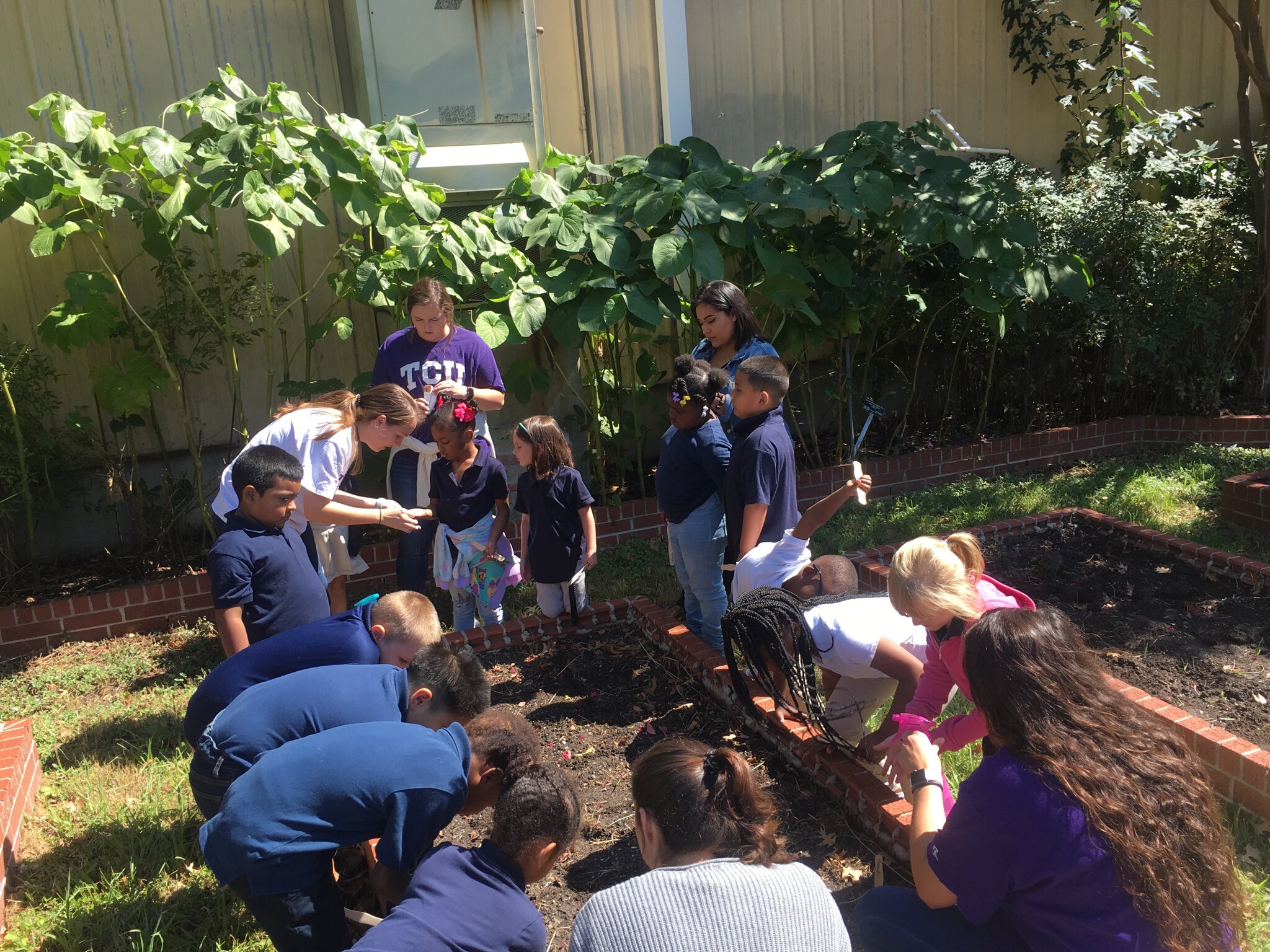
Nursing students work with the students at Morningside Elementary. Photo courtesy of Gina Alexander 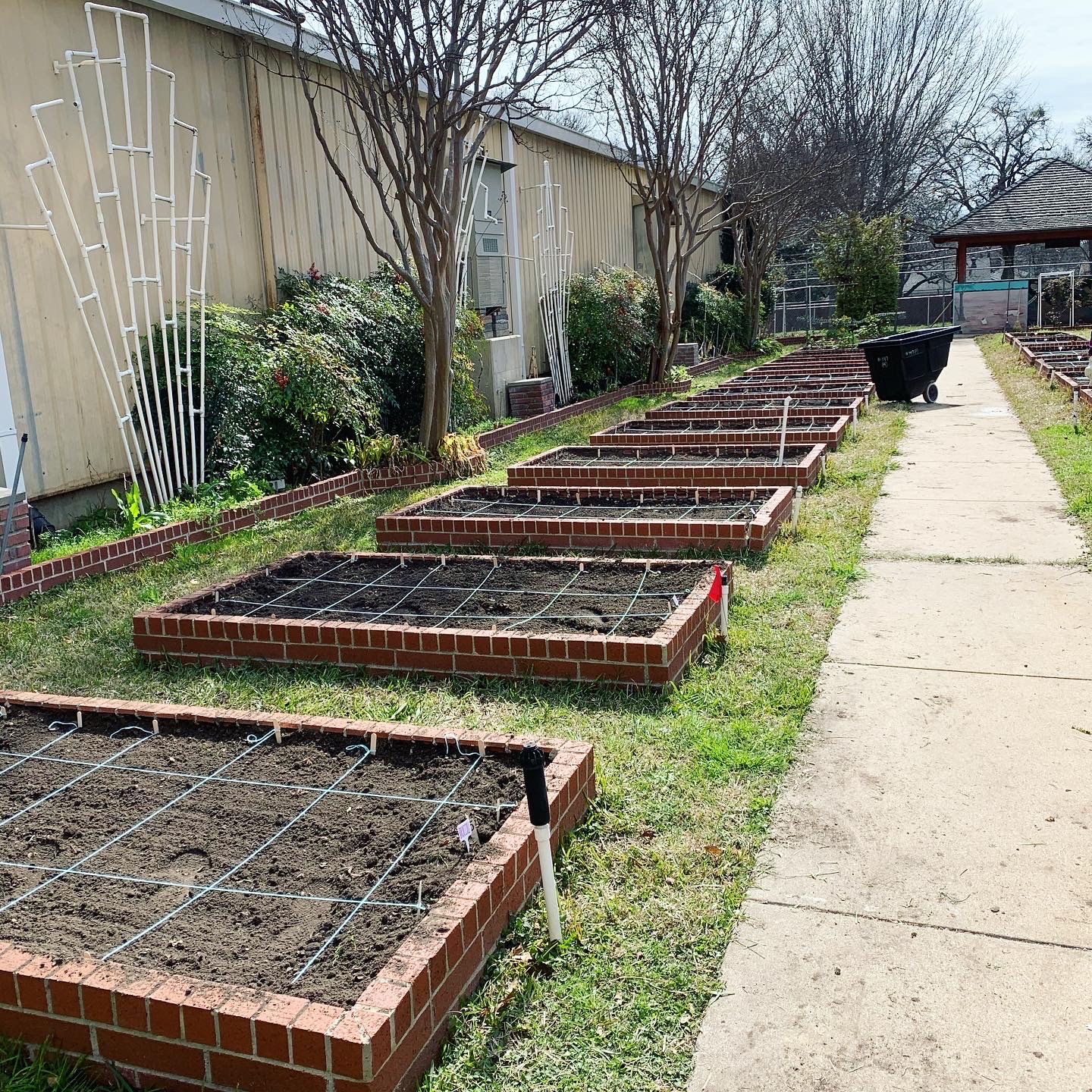
The garden beds at Morningside Elementary School. Photo courtesy of Kaley Kuczek 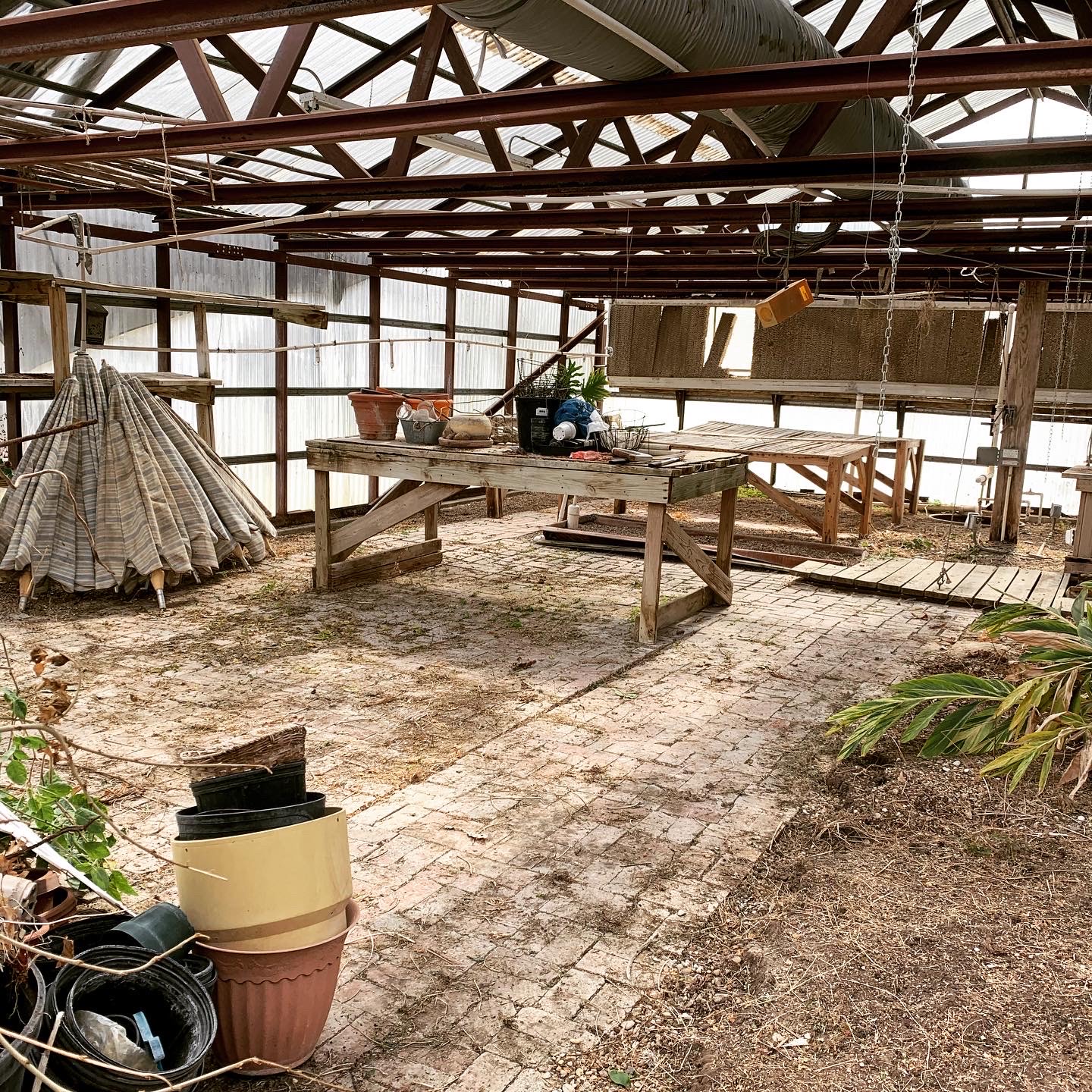
The greenhouse at Morningside Elementary. Photo courtesy of Kaley Kuczek 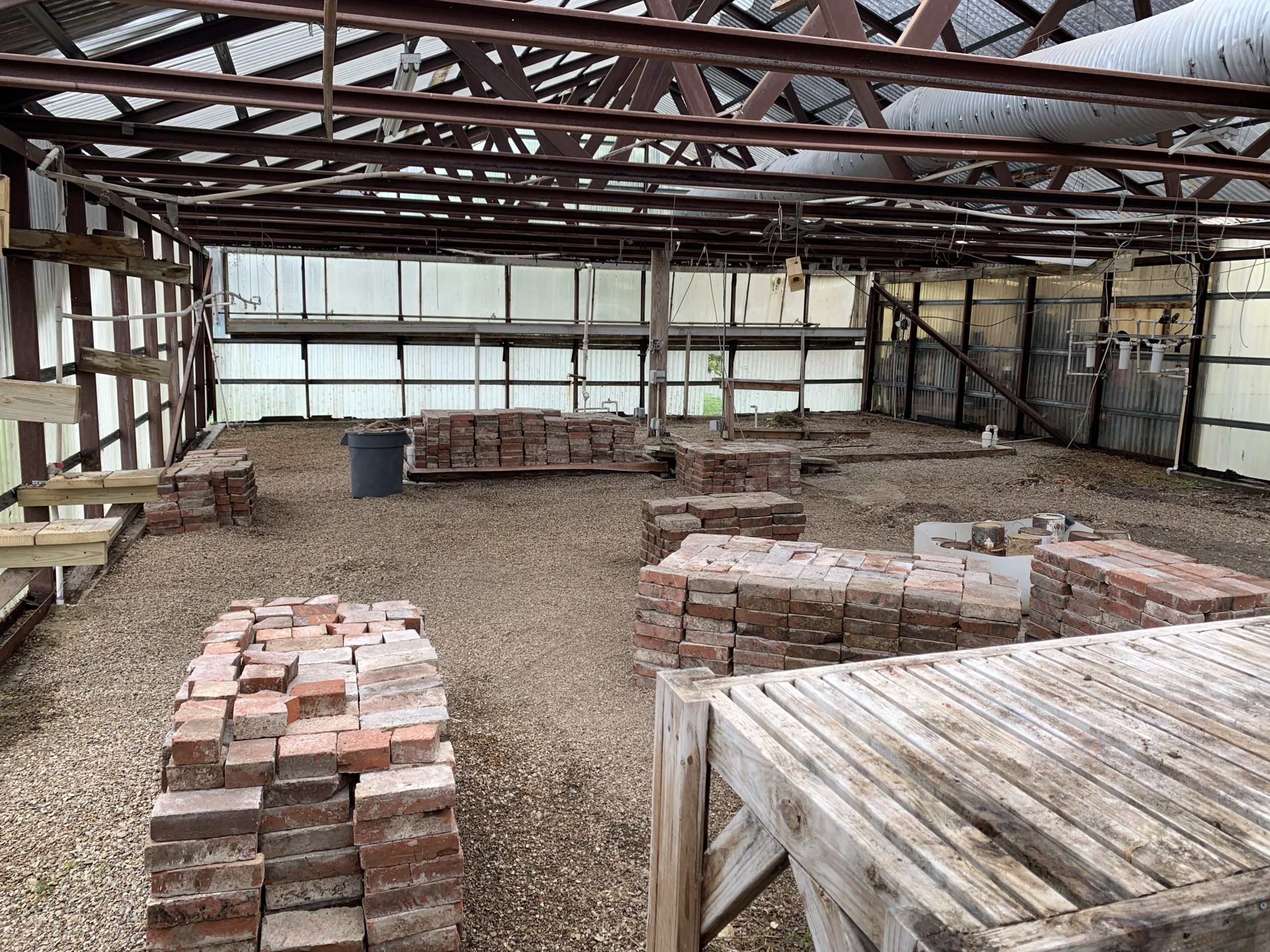
Kuczek cleaned out the greenhouse before spring break. Photo courtesy of Kaley Kuczek 
Kuczek painted this bench for the garden. Photo courtesy of Kaley Kuczek 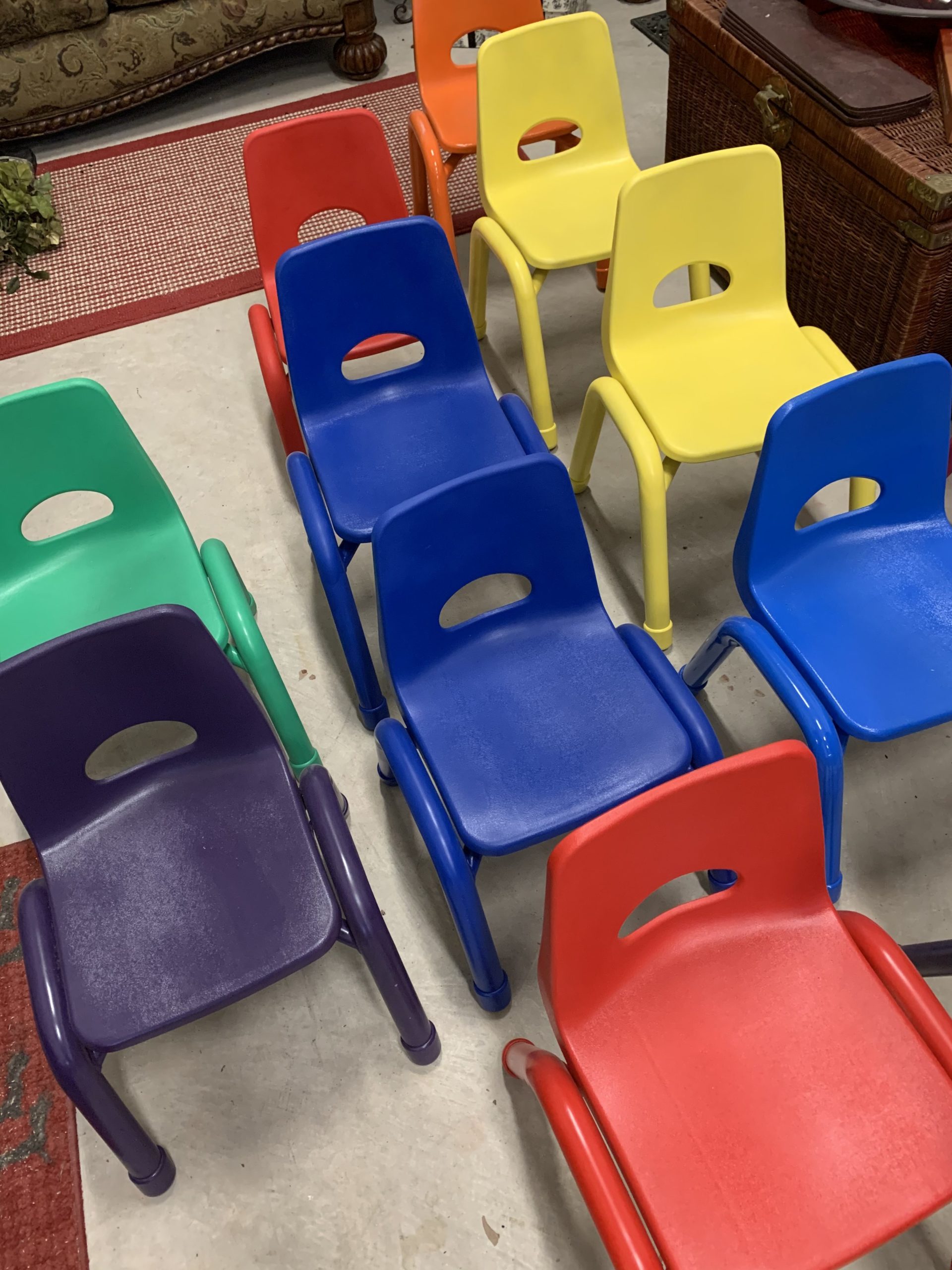
Chairs for the garden. Photo courtesy of Kaley Kuczek
“I’m getting to combine my company with nursing school, and I love that,” she said.
So far, Kuczek has raised about $4,000 through donations from local businesses, people she knows and a GoFundMe to pay for the renovations.
Before Fort Worth’s stay-at-home order was issued, Kuczek gutted the greenhouse. Once people can return to Morningside, the turf needs to be added, the landscaping needs to be completed and the structure of the greenhouse needs to be fixed.
In the meantime, Kuczek has been making progress at her home, building tables and painting chairs that will go in the greenhouse.
Although Kuczek said she doesn’t know where she will live after she graduates in August, she is motivated to finish what she started.
“No matter what, I’m gonna finish the greenhouse,” she said.
Looking forward
While RxPLORE doesn’t have the technological tools in place to write prescriptions for patients during the current situation, Alexander said the importance of being in nature–while following social distancing guidelines–remains.
“If you can find a more isolated area, it’s very healing to be outside and not stuck inside,” Alexander said.
Alexander and Brooks want to implement RxPLORE on campus. Working to achieve that goal, they spoke with Jane Torgerson, the medical director of the Brown-Lupton Health Center, in hopes of creating some “tentative plans” for next semester. Alexander said she, Brooks, Torgerson and a representative from the counseling center hope to begin meeting in-person in August.
One of their first tasks will be to map the green spaces so that on-campus students can access to tap into the health benefits nature provides. Another priority involves coordinating with the University Recreation Center — particularly the adventure trips.
Alexander said they have focused their community-based implementation to conservation education and hiking. At the end of the fall, they want to include undergraduate students as research assistants to understand the effects of an intervention located in lower-income communities in southeast Fort Worth.
“So a lot of things are going to be happening in the fall, once we all are back face-to-face,” Alexander said. “I think we’ll see a lot of momentum, and we’ll be able to see some more growth of this program and more investment by other people.”
To do this, Alexander and Brooks plan to finish their nature and forest therapy guide training in the fall, enabling them to train research assistants. Then they can enroll families from those areas into their program, which will introduce them to hiking and nature conservation education.



